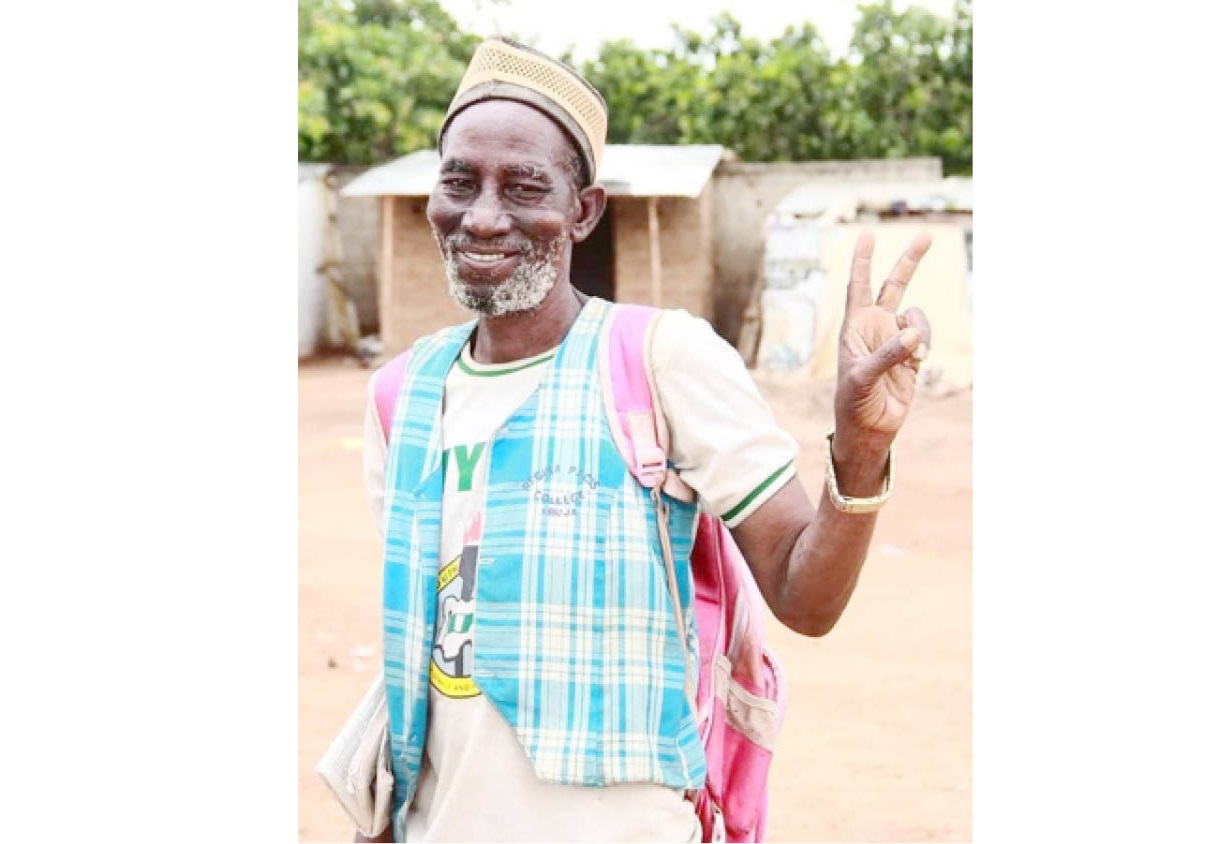‘Ignoring us won’t augur well for the future’ – Durumi IDP
It was a pitiful sight at Durumi IDP camp in Abuja when a group of journalists visited it alongside Paged Initiative, an NGO that seeks to highlight changing gender norms and cultural practices in the conflict-ridden region of Borno State. Idris Ibrahim Halilu, 65, from Borno State, is the camp coordinator. With no immediate family, […]

It was a pitiful sight at Durumi IDP camp in Abuja when a group of journalists visited it alongside Paged Initiative, an NGO that seeks to highlight changing gender norms and cultural practices in the conflict-ridden region of Borno State. Idris Ibrahim Halilu, 65, from Borno State, is the camp coordinator. With no immediate family, he has adopted everyone at the camp as his family. He advocates for them, providing comfort and support where he can. Ibrahim is the fourth child to late Ibrahim Halilu, first commandant of the Nigerian Customs Service.
Career and educational background
I am a professionally trained teacher, and I taught in a primary school briefly. I then worked with the Ministry of Health in Maiduguri. I completed my course in Mass Communication the same year Murtala Muhammed took over government from Yakubu Gowon. He initialized two media houses; FRCN and NTA.
I was among the pioneer staff in the Nigerian Television Authority (NTA). I worked with NTA for almost two decades as a news producer. I was actively into unionism, so I was at loggerheads with the management of NTA. So, I found myself in Lagos, working as a public relations consultant for 17 years before retiring.
How does taking care of numerous families make you feel?
I feel happy because it is a privilege. It is great that I can take care of people not necessarily from my background or family members but people that are in need. These people are in need of advocacy, succour, sensitization, counseling and much more. So, I am honoured that I found myself as their advocate, defender and also a voice for the voiceless. I found a happy vocation. I have never been paid and what I am doing is voluntary. Sometimes I only get to eat once in a day for an entire week. Sometimes it’s from the pressure of the work, sometimes it’s the lack of food but I don’t mind. I feel happy to serve the traumatized and the brutalized. It’s a great privilege.
What has life after Boko Haram experience been like?
I watched a documentary on the insurgency and it was fantastic. It was natural and the victims were realistic and truthful. There were no inhibitions, the story was captured as it were and is. It included pictures and videos of the real victims i.e. the ones that have died. That should serve as a constant reminder of the consequences of insurgency.
Also, I don’t know why the IDPs in Abuja are not favoured at all. If you see where we sleep, it’s nothing to write home about. It’s the NYSC that built classrooms for us as their Community Development Service (CDS) but there is no actual accommodation. Feeding is zero, accommodation is zero, and access to medical welfare is zero. Sometimes when you’ve had the experience we’ve had, you will be afraid to even express yourself and in the area of counselling, nothing is forthcoming.
Of all the IDP camps in Nigeria, none has experienced real counselling. I was just called by someone in the hospital and I didn’t have even one naira, but I had to go. Sometimes I trek to the Medical Centre, sometimes I even beg and when I don’t have energy to beg, I trek 30-45 minutes to get there.
When people come to visit us, talk to us, bring us gifts, it gives us a feeling of oneness with humanity, that we are still considered humans.
We want to be remembered by people in the society, to feel like humans once again but people and the government continue to ignore us and this won’t augur well for the future.
